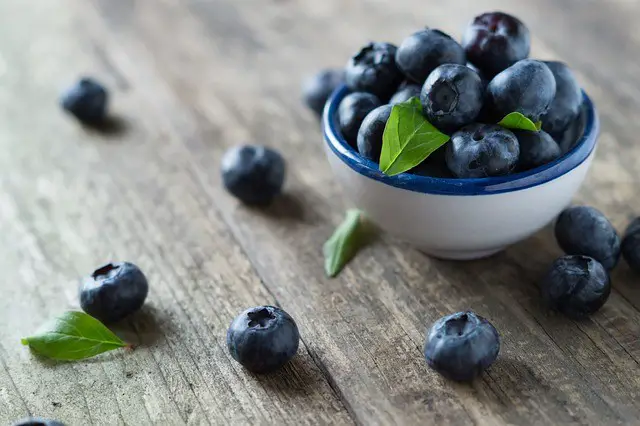Fruits are an important addition to your daily diet thanks to the essential nutrients they contain. A good example of fruits that most healthcare professionals advocate for is citrus fruits. Citrus fruits include mandarins, oranges, limes, grapefruits, and lemons.
Why are we so focused on the lemon fruits today? This versatile fruit deserves to be in the spotlight thanks to the role it plays in weight loss and immunity boosting. In addition, it is among the few fruits that are allowed on the ketogenic diet or healthy low-carb diets.
In today’s article, I will provide you with lemon juice nutrition info. Why is this necessary? Knowing how much of a nutrient is in a cup of lemon juice will help you understand why this fruit is among the popular foods for weight loss. Knowing the percentage daily values i.e., how much a serving of food contributes to your diet, enables you to choose which foods best meet your nutritional needs.
Lemon Juice Nutrition Info
Lemon fruits grow on the lemon tree. When talking about the benefits of lemon juice, we are referring to fresh lemon juice squeezed from the fruit. Lemon juice from concentrate or the bottled variety usually contains added sugars which can kick you out of ketosis by spiking your blood sugar. Always check nutrition labels to track your sugar, carb, and calorie intake when following a low-carb or low-calorie diet.
Lemon Juice Nutrition Information
According to FoodData Central, a cup serving of lemon juice provides you with:
- Energy: 53.7 kcals
- Water: 225 g
- Total carbohydrate: 16.8 g
- Dietary fiber: 0.732 g
- Net carbs: 16 g
- Sugars: 6.15 g
- Protein: 0.854 g
- Fats: 0.586 g
- Trans fat: 0 g
- Cholesterol: 0 mg
- Vitamin C, total ascorbic acid: 94.4 mg
- Vitamin B6: 0.112 mg
- Vitamin D: 0 IU
- Vitamin K: 0 µg
- Potassium: 251 mg
- Lutein+ zeaxanthin: 15 µg
Does Lemon Juice Have Carbs?

Although considered low carb, they do contain carbs. Carbohydrates are classified into complex carbohydrates and simple sugars. The former takes longer to be digested and absorbed, while others are indigestible like fiber. The latter are easily broken down and absorbed into the bloodstream.
What should you know about carbohydrates in lemons? They constitute simple sugars and dietary fiber. The kind of fiber in lemons is soluble fibers e.g., pectin. Soluble fibers help in regulating blood cholesterol levels which lower the risk of heart disease. In addition, they can help with regulating blood sugar levels because they do not cause any spikes in insulin or blood sugar levels.
Micronutrient Information for Lemon Juice
Why go for lemon juice? Because lemon juice nutrition info shows they are an excellent source of vitamin C. If you are looking to increase your vitamin C intake, then adding lemon juice to your diet would be a smart choice. A cup of lemon juice provides 50% daily value of this nutrient. Why is vitamin C necessary?
Vitamin C is one of the antioxidants in health promotion. A large number of the numerous health benefits of lemon juice have been attributed to this particular nutrient.
This juice is an excellent source of potassium as well which plays a key role in regulating blood pressure and lowering risks of cardiovascular disease. Another nutrient present in lemon juice is vitamin B6, which is used in the conversion of food to energy.
Other vitamins found in minimal amounts here are calcium, thiamin, and folate.
Lemon Benefits and Side Effects

You may be a fan of lemon juice or lemon water, but are you aware of the benefits of that glass of cold or hot drink? Besides its sour flavor that makes it good for garnishing, is there another reason you should incorporate it into meals? Can lemon juice be bad for you?
Benefits of Squeezing Lemon on Food
Excellent Source of Vitamin C
I know I am starting to sound like a broken record, but if you are trying to up your intake of vitamin C, incorporate lemons into your healthy diet. Vitamin C is an antioxidant that reduces inflammation and lowers the risks of chronic diseases.
Besides this, it plays a significant role in collagen production which promotes skin health. This could be why your beautician places lemon wedges on your face during a session!
Have you ever had low blood levels or suffered from iron deficiency anemia? Did your doctor suggest a glass of lemon water to accompany your meal with dark green non-starchy vegetables? The reason behind this is that the vitamin C in lemons will help with the absorption of iron in your veggies. An increase in daily intake of vitamin C helps with iron absorption.
Weight Loss
Fresh lemon juice is a great addition to your low-calorie diet since it only provides 54 kcals per cup. Lemon is also great for weight management because it contains fibers that increase satiety levels reducing food intake. However, you will not get as much fiber from lemon juice if you strain it out. It’s better to press whole lemon wedges into your water for higher fiber content.
Heart Health Promotion
Research has shown that increased intake of vitamin C has been associated with a lower risk of heart disease. Vitamin C deficiency has also been linked with higher risks of coronary heart disease and stroke. These risks are higher in overweight or obese individuals and hypertensive patients.
As I mentioned earlier, soluble fibers help regulate cholesterol levels. Soluble fibers bind with cholesterol particles and increase their excretion which lowers serum lipid levels. They bind with bad LDL cholesterol in the small intestine preventing them from being absorbed into the bloodstream. Another way soluble fibers lower cholesterol levels is through the fermentation of cholesterol particles to short-chain fatty acids, further reducing their levels in the body.
Lower cholesterol levels promote a healthy heart.
Lower Risks of Kidney Stones
Acid citrus fruits contain citric acid that can help lower the risks of developing kidney stones.
More research is needed to understand the mechanism of action of lemon extracts on kidney stones.
Antioxidant-Rich
Lemons contain plant compounds that are antioxidants. These include:
- Hesperidin: This is an antioxidant known to lower the risks of atherosclerosis by reducing fat deposits on blood vessel walls.
- D-limonene: this compound is found in lemon peels and gives this fruit its aroma. It has been shown to relieve acid reflux.
- Eriocitrin: an antioxidant found in lemons with nephroprotective, lipid-lowering, anti-inflammatory, and hypoglycemic properties.
- Diosmin: This is a common component used in circulatory system medication to tone the muscles of your blood vessels and reduce inflammation.
Cancer Prevention and Slower Disease Progression
Hesperidin and D-limonene have been shown to possess anti-carcinogenic properties. Tangeretin in citrus fruits has been shown to suppress the growth of T47D breast cancer cells. Other cancers you can prevent with lemon juice and lime extract are colon cancer, lung cancer, liver cancer, and skin cancer.
Preventing Iron Deficiency Anemia
Vitamin C helps in iron absorption which will further prevent anemia. Squeeze lemon juice on your veggies to help absorb non-heme iron from iron plant sources.
Antimicrobial Properties
Extracts from citrus fruits including lemons have been shown to possess antimicrobial properties against saprophytic and pathogenic microorganisms. It inhibits the growth of Salmonella, E. coli, candida, and Staphylococcus species.
Side Effects of Lemon for Female

For women (or men) who consume lemon juice for weight loss, there are several side effects to look out for.
Dental Erosion
One thing to know about lemon juice nutrition info is that this fruit is highly acidic. Excessive consumption of lemon extracts is bad for your dental health. The acids in this fruit can corrode your teeth leading to tooth decay. Opt for lemon water instead of lemon juice for better dental health.
Can Trigger Headaches
Lemons produce a monoamine known as tyramine that has been shown to trigger migraines. If you suffer from occasional migraine attacks it may be wise to lower your intake of this fruit.
Beware of Mouth Sores
Citrus fruits are sour and acidic. Consuming these fruits can cause or worsen canker sores. Take a break from your lemon juice drink routine if you get a painful non-contagious sore in your mouth. You can go back to habit once it heals up.
It May Worsen Acid Reflux
Lemons are naturally acidic so it may not be wise for individuals suffering from gastrointestinal conditions to consume this fruit. If you suffer from gastroesophageal reflux (GERD), limit your intake of lemon juice.
These side effects apply to men as well.
Does Lemon Juice Spike Blood Sugar?

Taking a look at lemon juice nutrition info, it is safe to say that it is low-carb and contains small amounts of sugar. This beverage has a glycemic index of 20 and a glycemic load of 0.6. This means that drinking lemon juice is less likely to spike your blood glucose or insulin levels.
This beverage is great for diabetics who want to get rid of sugary drinks and opt for a healthier alternative.
Summary
Lemon juice is low in calories, carbs, protein, and fat. However, it is high in nutrients like vitamin C, potassium, vitamin B6, and fiber. Incorporating this beverage into your daily diet can help with weight management and improve heart and kidney health. However, beware of how much you consume because it could be bad for your teeth and oral health.
How do you incorporate lemon juice into your diet? Share your answers in the comments below!







